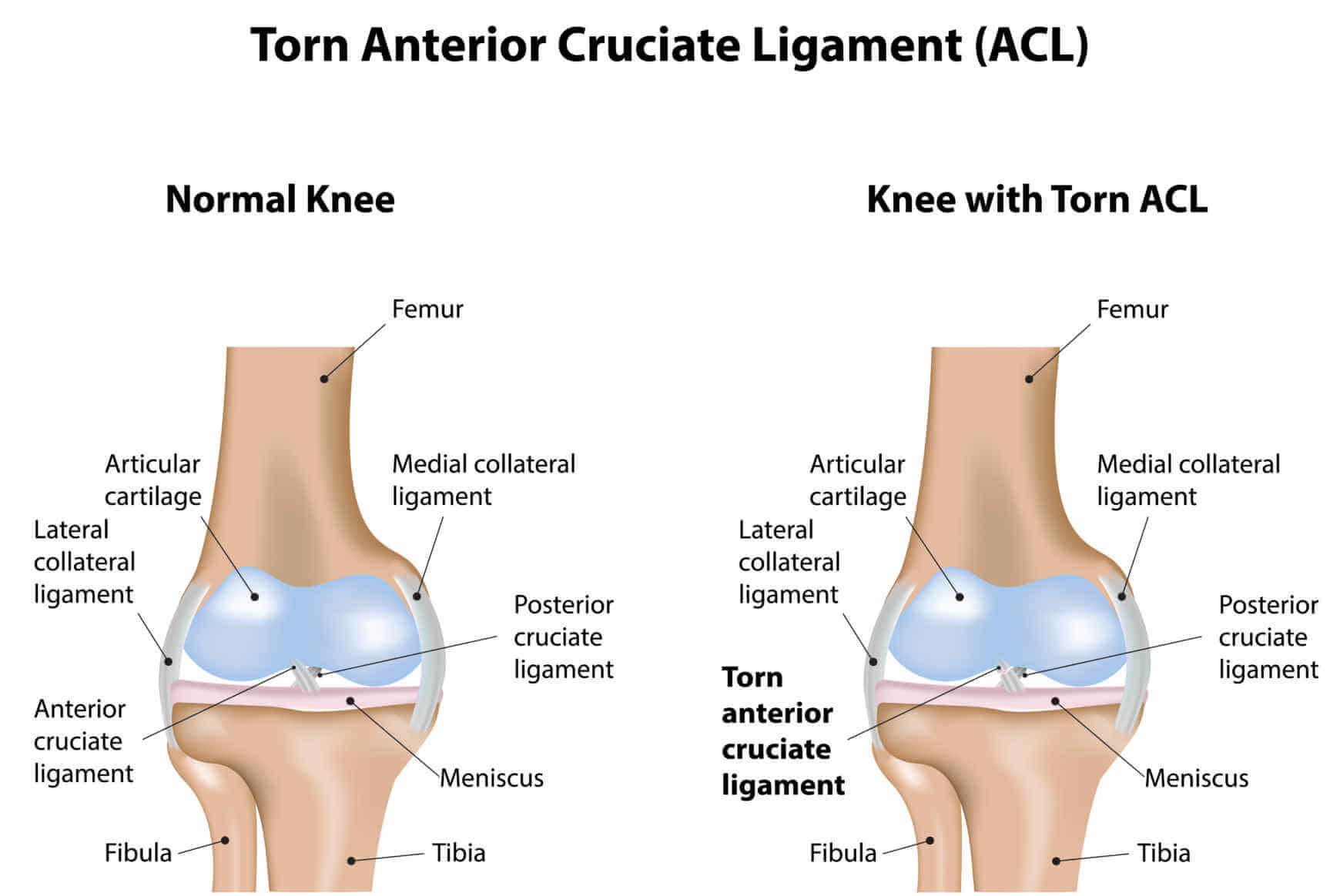When we think of dangerous sports, we often think of activities that produce the most…

Top Things You Should Know About ACL Injuries
The ACL (anterior cruciate ligament) is the ligament that connects the femur (thigh bone) and tibia (shin bone). ACL injuries are commonly called sprains. An ACL tear is the most severe injury, as this indicates the ligament has been completely severed. The severity of the damage will determine what type of treatments are necessary.
When are ACL injuries most likely to happen?
Injury to the ACL is very common among athletes, especially those who participate in contact sports such as football, basketball and soccer. Common causes of ACL injuries include:
- Direct impact or collision
- Stopping suddenly
- Slowing down while running
- Incorrect landing while jumping
- Changing direction rapidly
Symptoms:
ACL injuries often coincide with one or all of these symptoms:
- Popping sound upon injury
- Knee giving out from under you
- Pain and swelling around and near the ACL
- Loss of range of motion
- Difficulty walking
- Tenderness to the touch
Sprains and Tears:
An exam must be performed by a doctor to determine the extent of damage to the knee. The severity, or degree, of the sprain is determined and classified by the amount of tearing in the tissue.
- First degree (mild) – Minor pain and swelling, small amount of tearing, joint stability is intact.
- Second degree – Moderate to severe amount of pain and swelling, broad range of damage, moderate level of joint instability.
- Third degree, or Tear (most severe) – Ligament is completely ruptured, severe pain and swelling, joint is unstable, likely damage to other surrounding tissues.
It is imperative to see a doctor if believe you have injured your ACL. After an examination, your doctor will be able to determine the severity of your injury, and you will be prescribed a treatment plan.
Learn more about ACL treatments and recovery in my article, “ACL Treatments and Recovery Process,” or give us a call at Anjuna Medicine at (541) 653-8692 to get more information about how Anjuna can help you!



